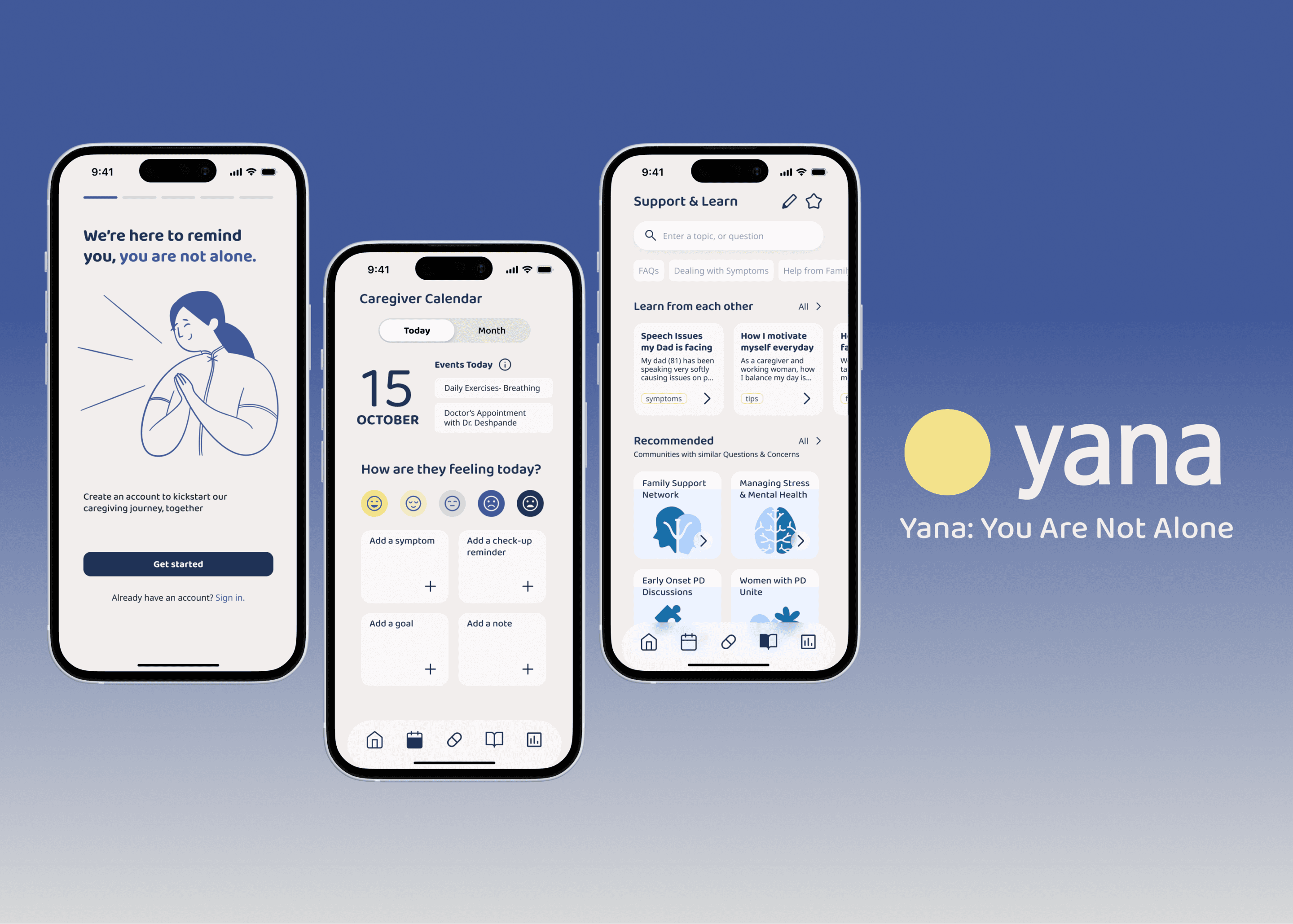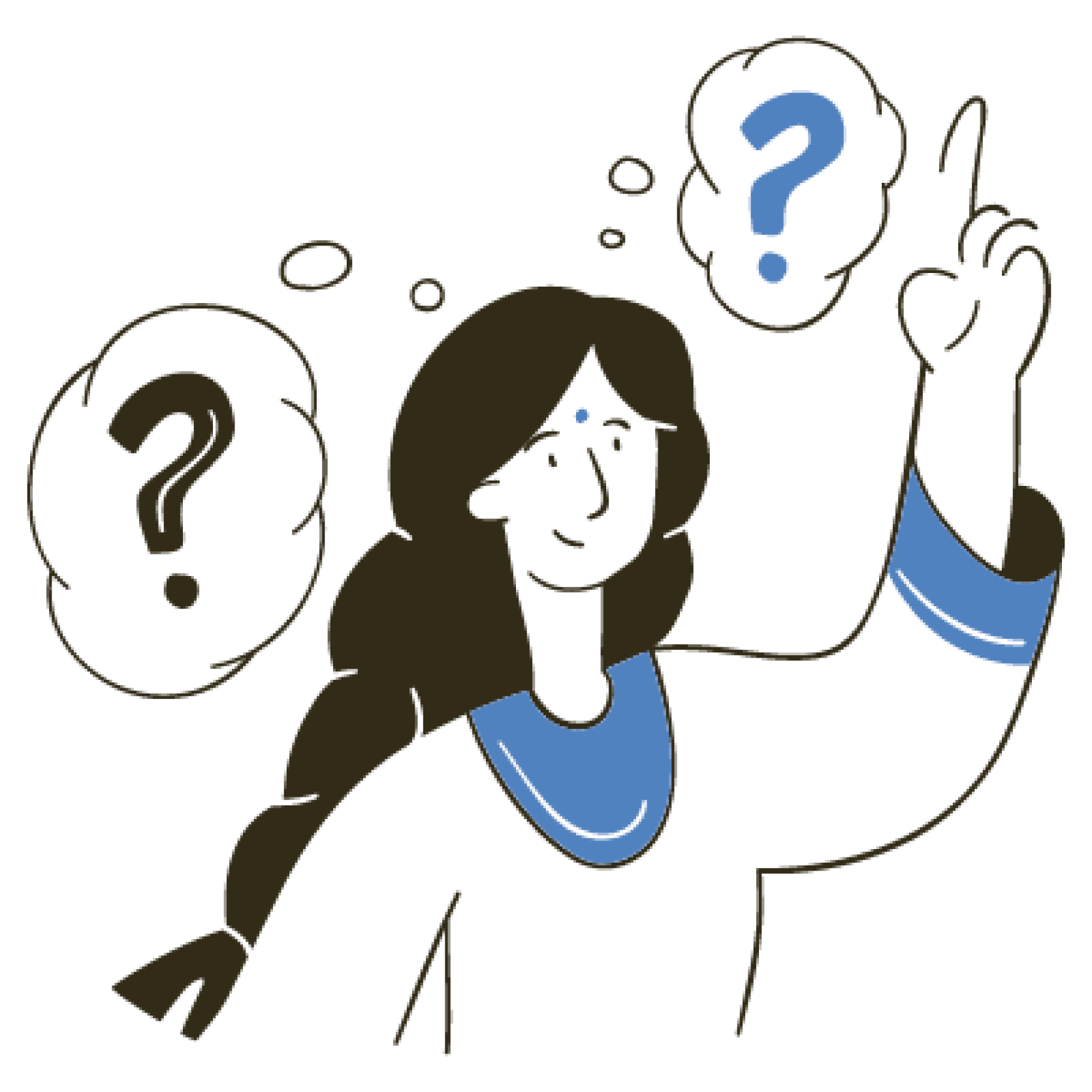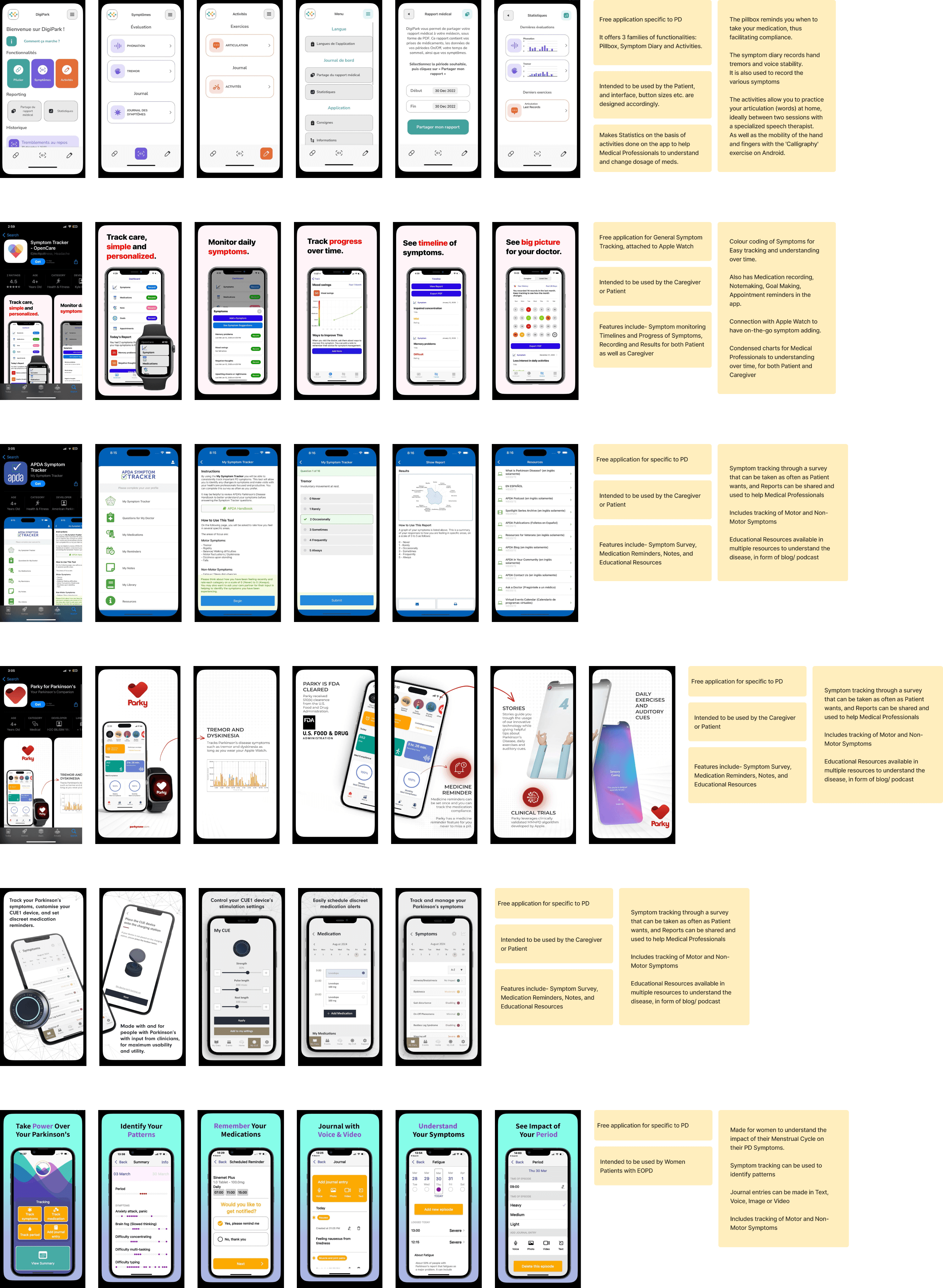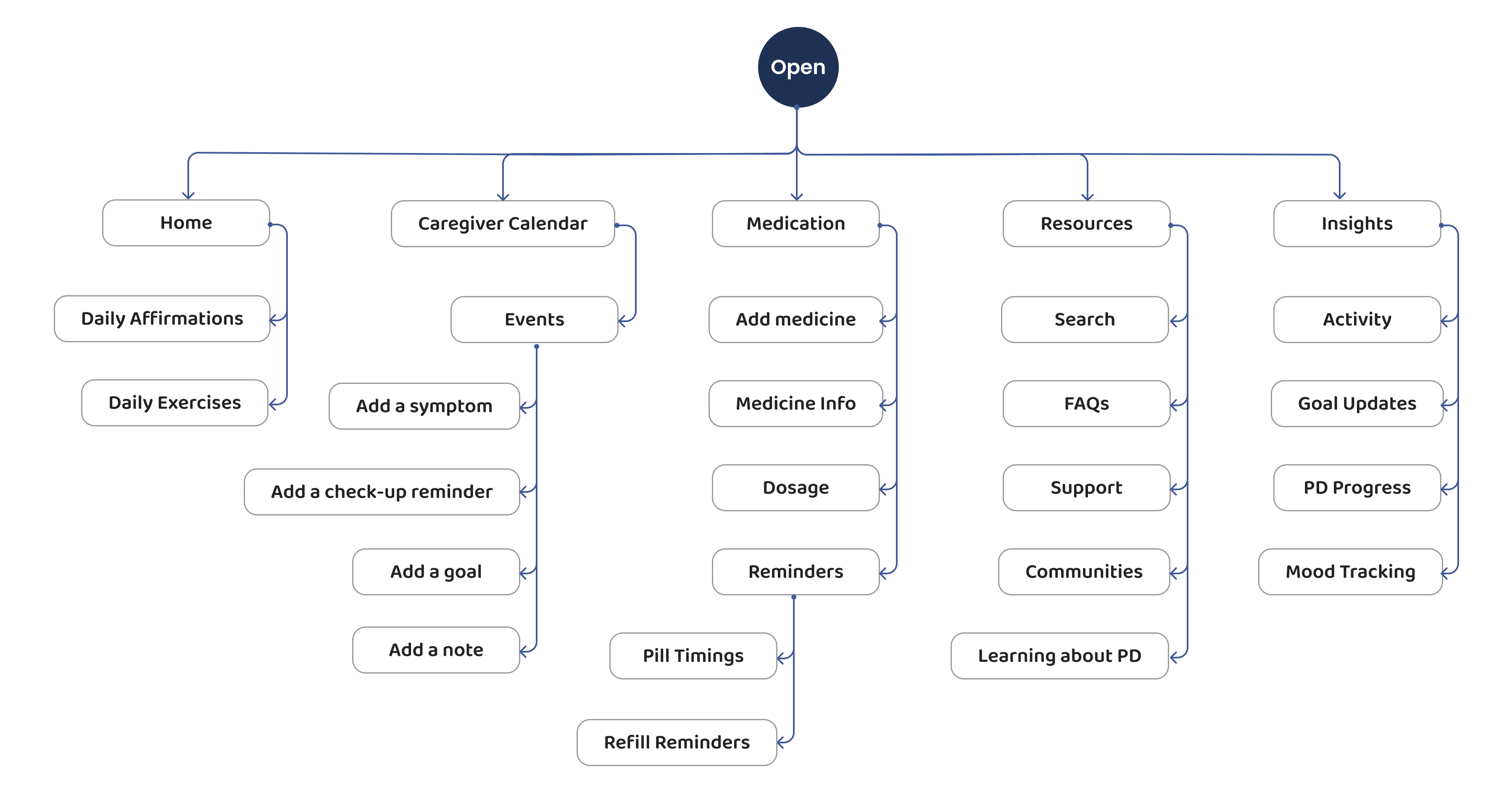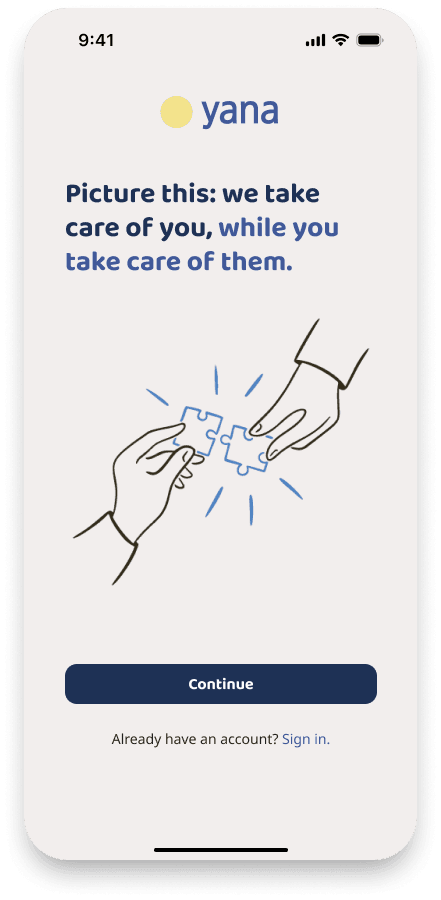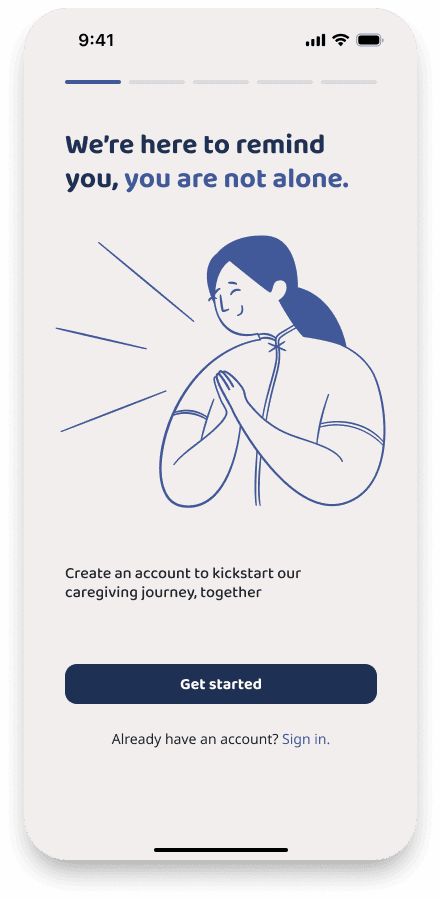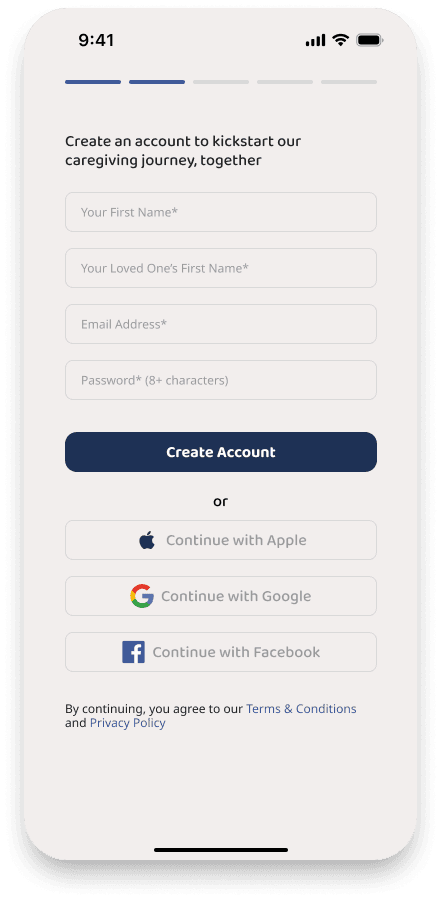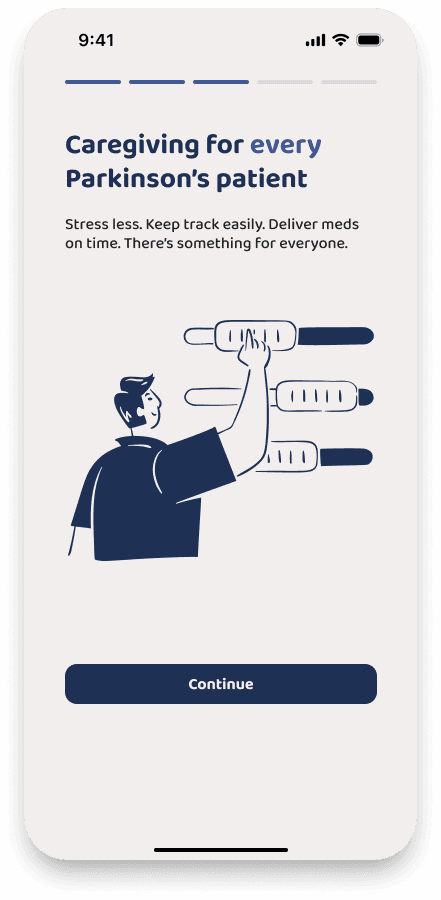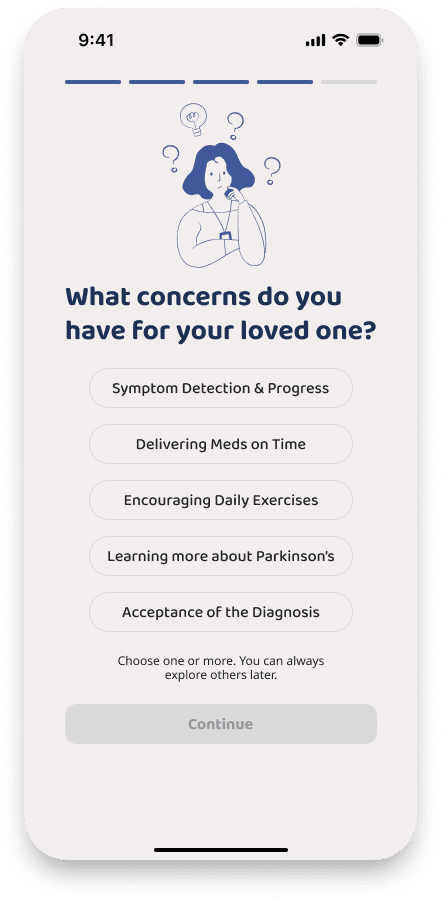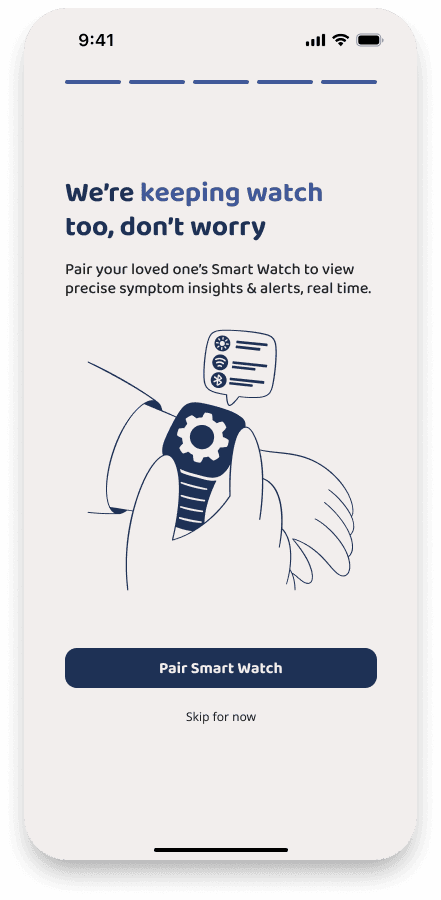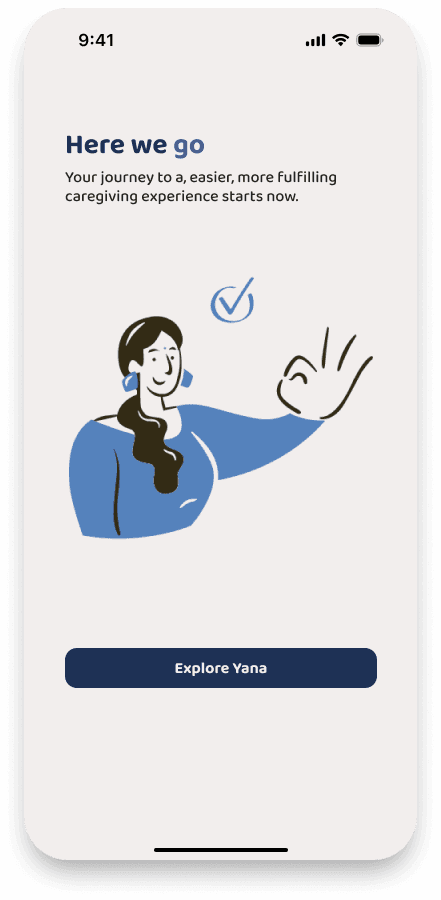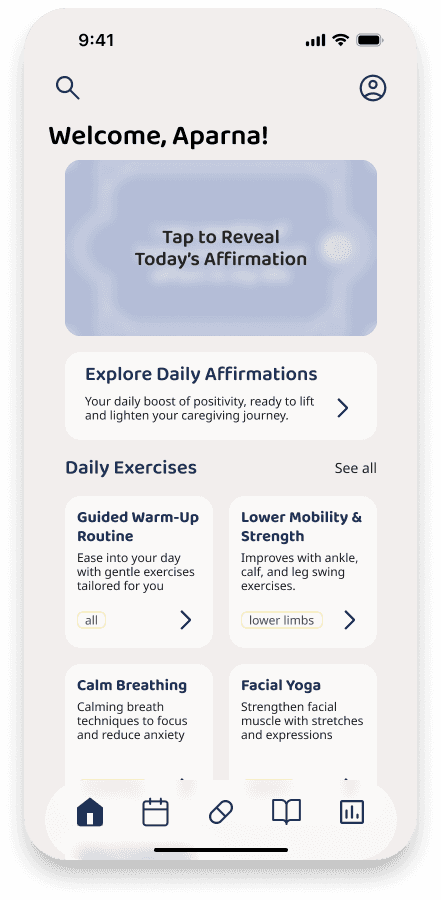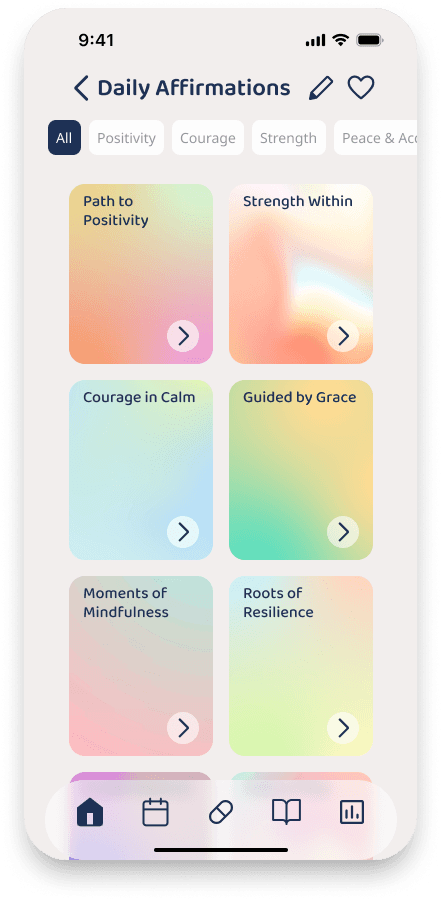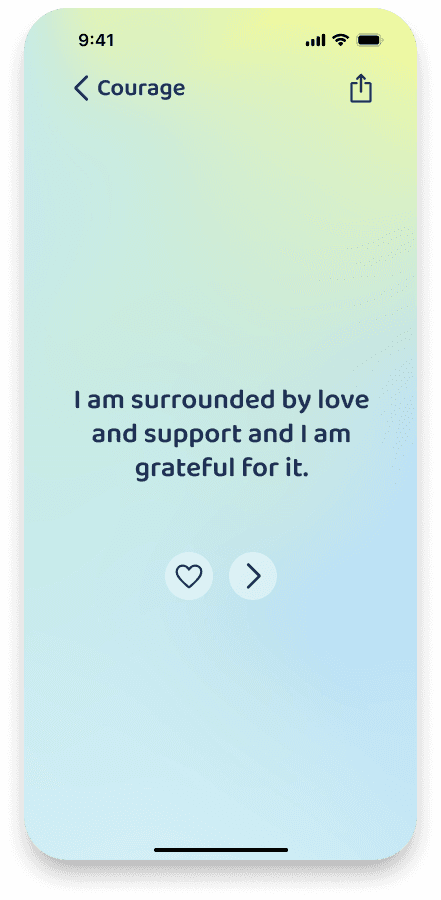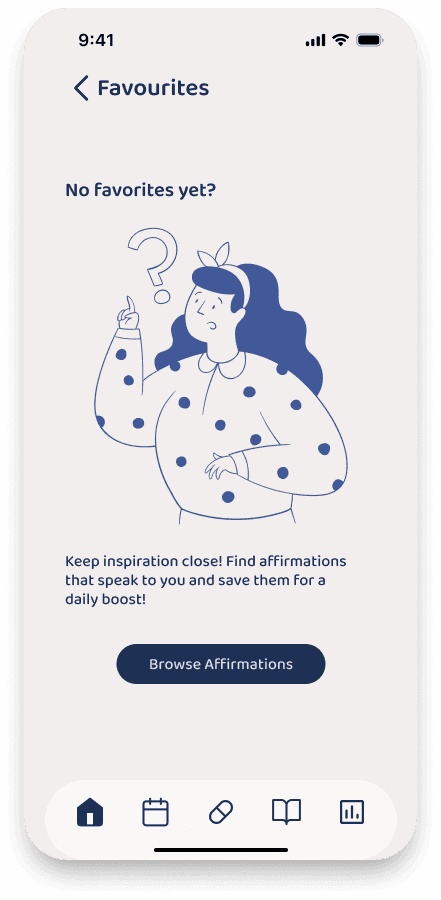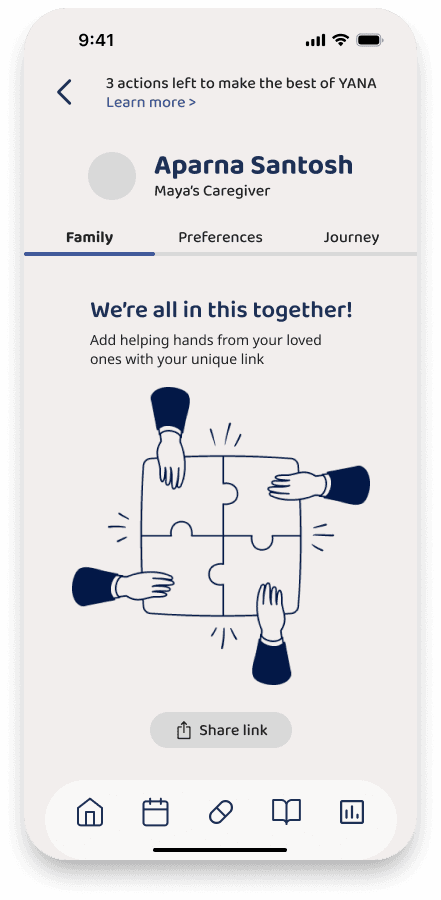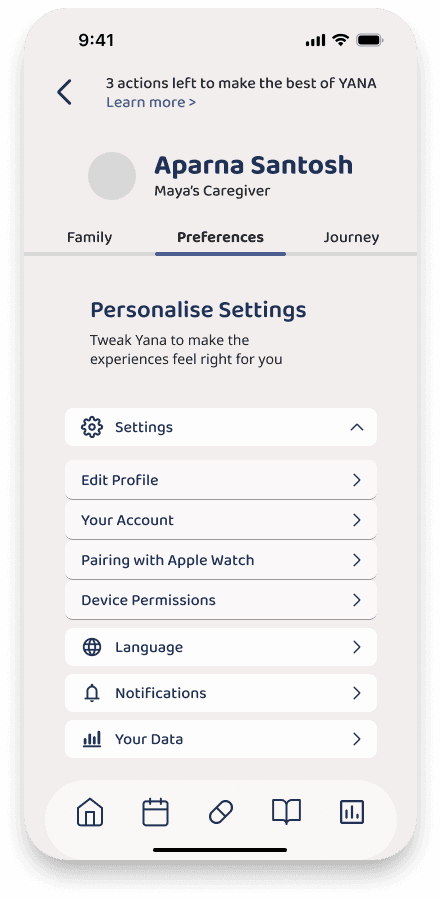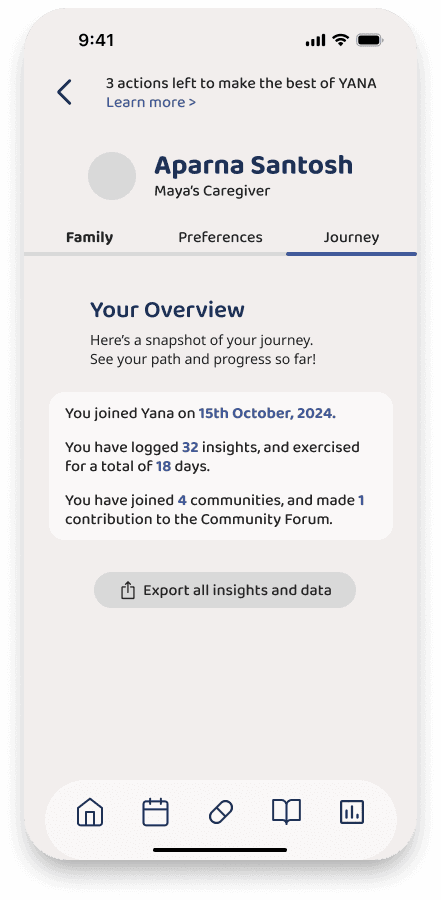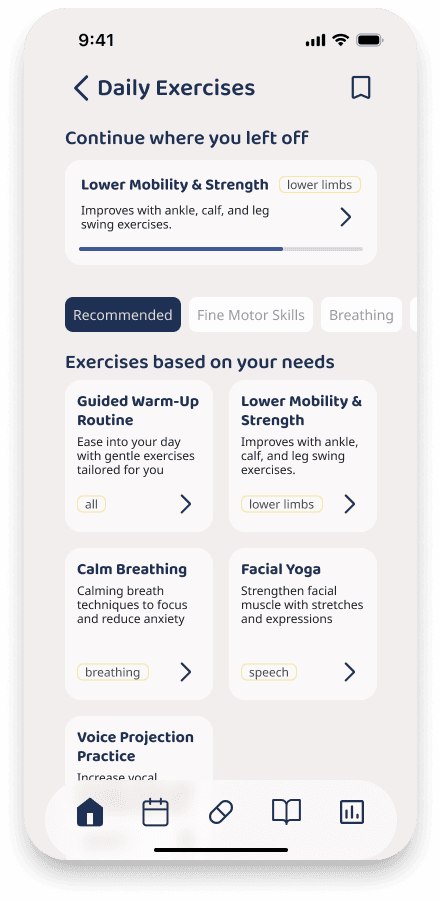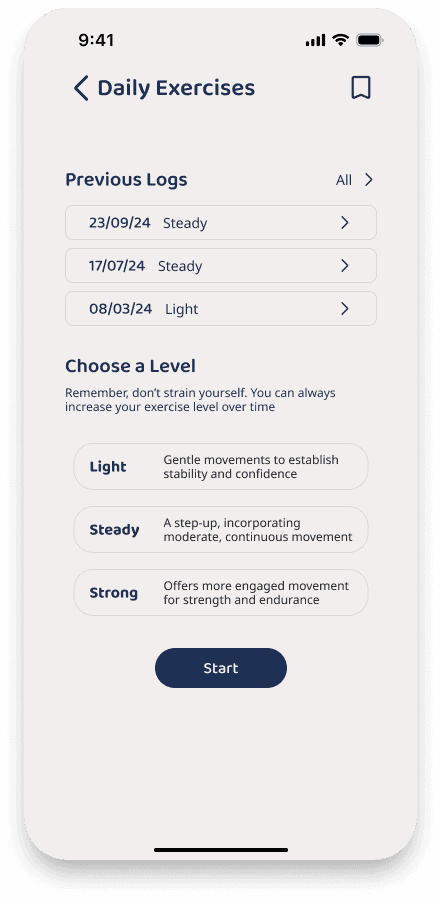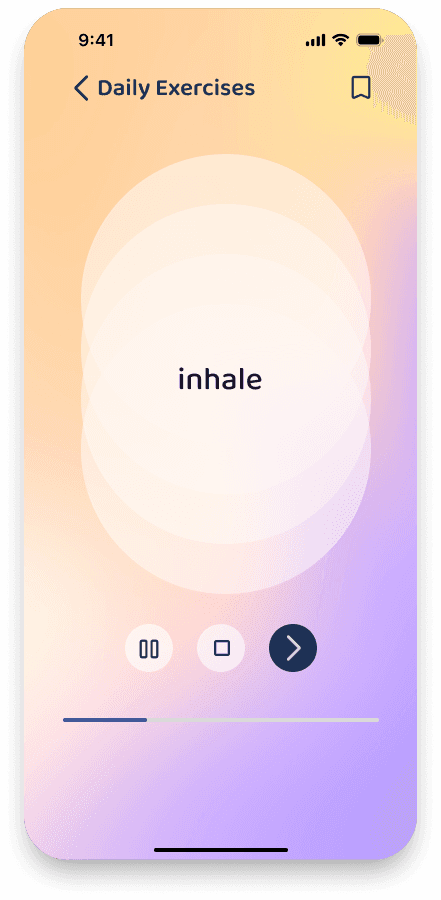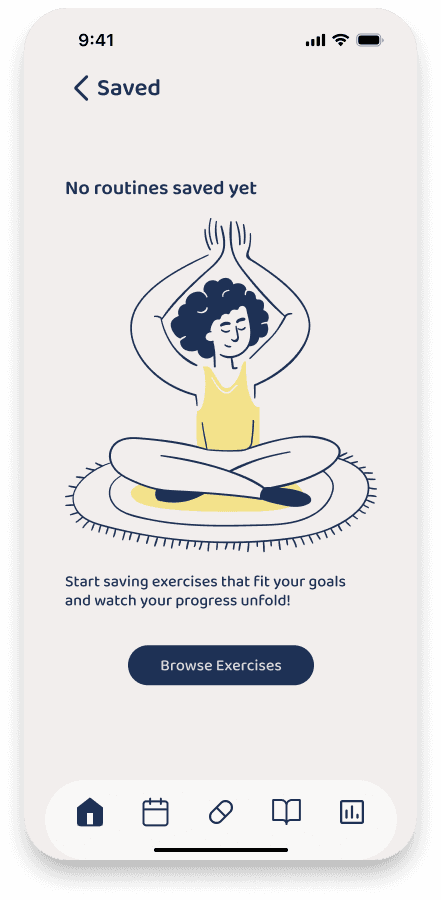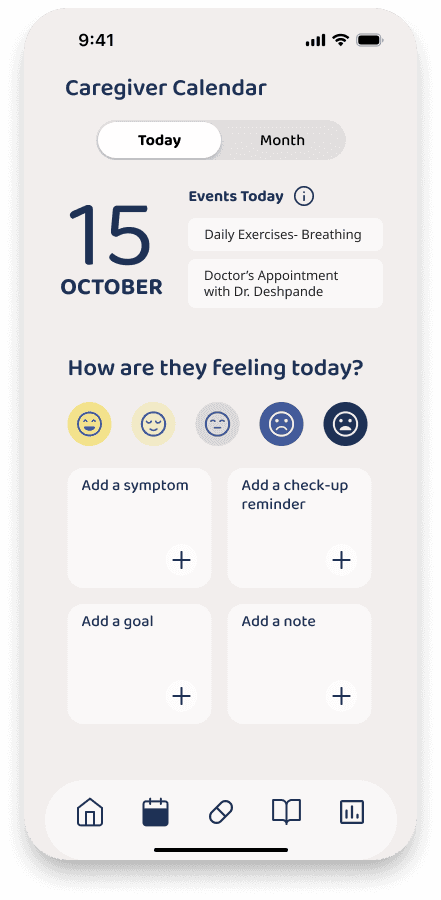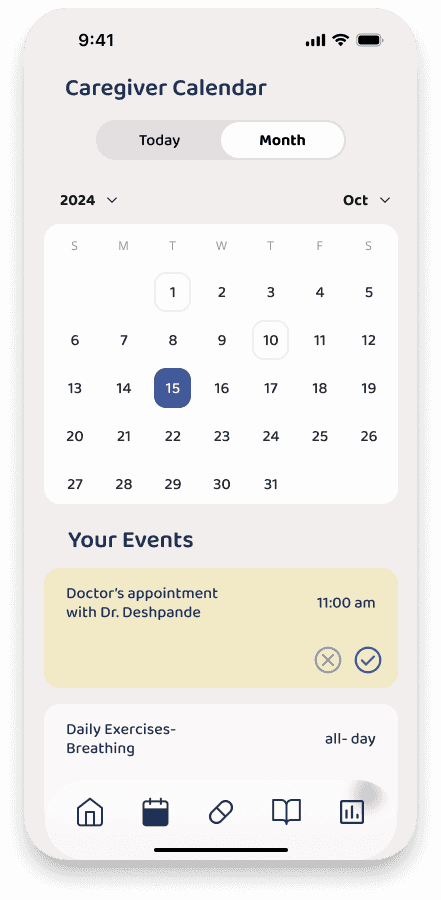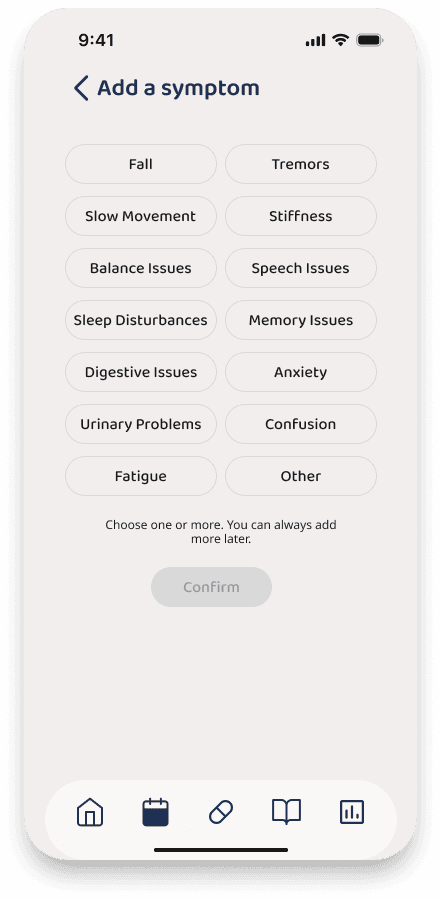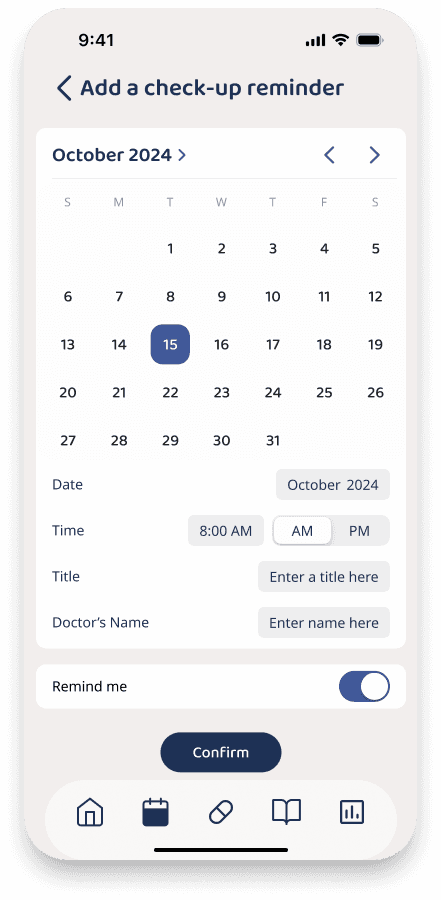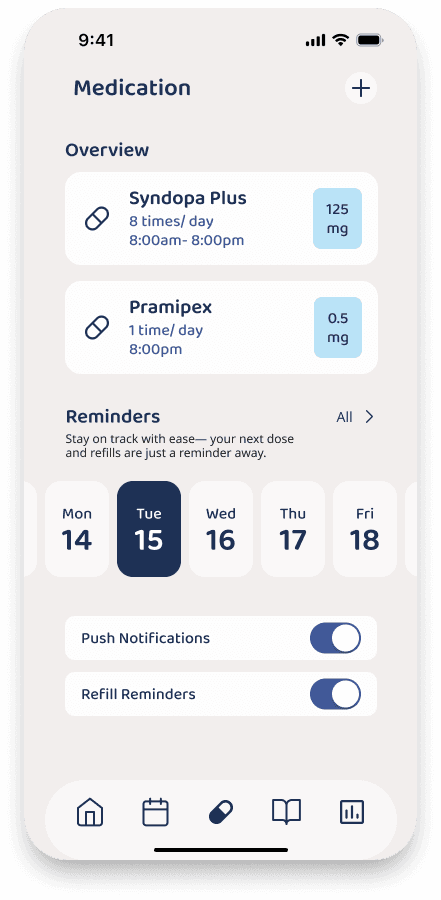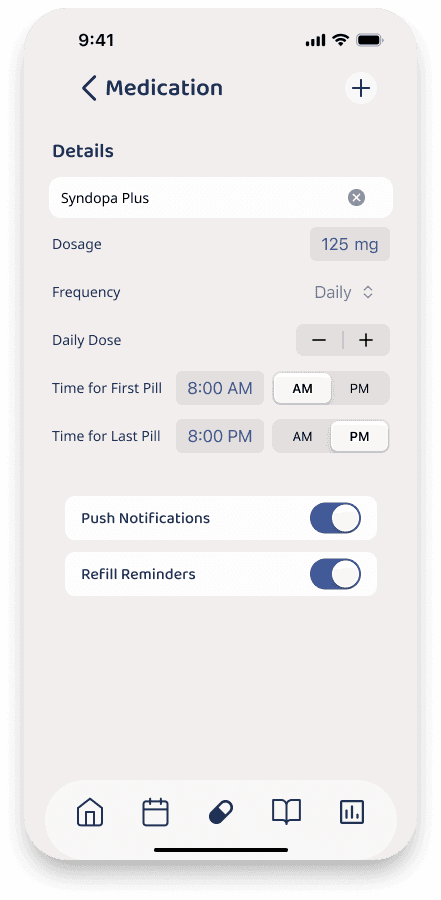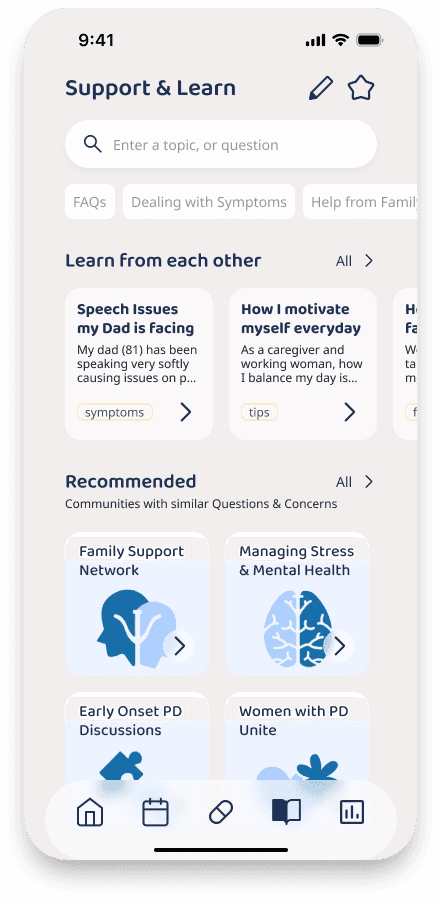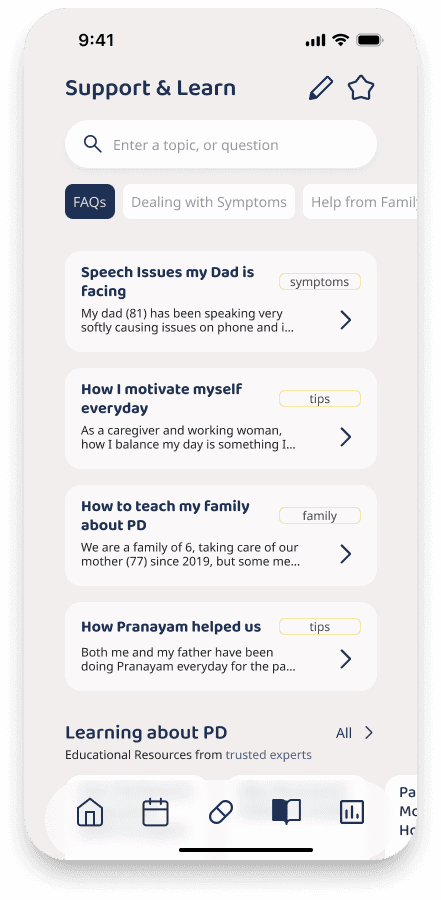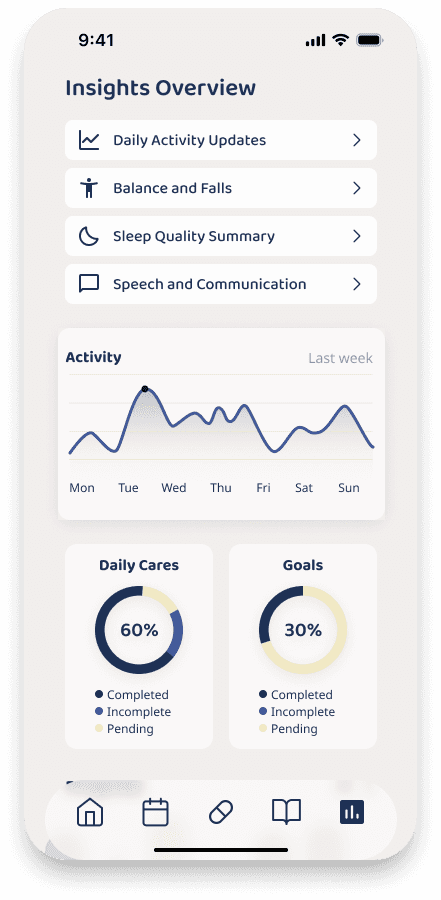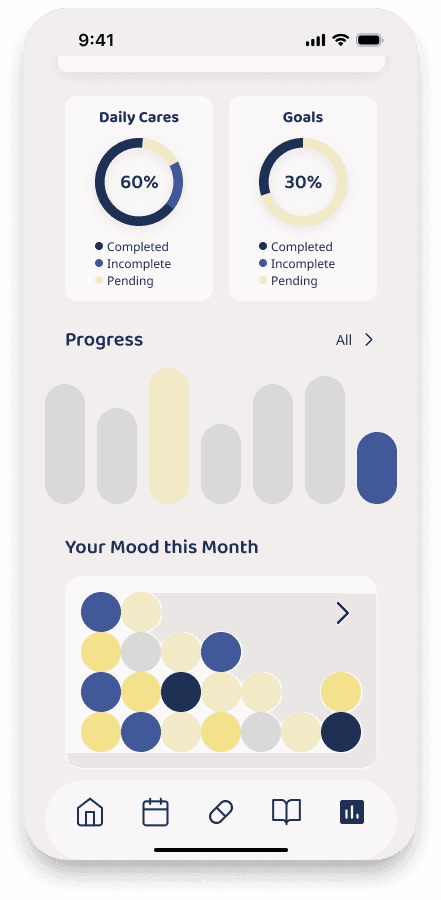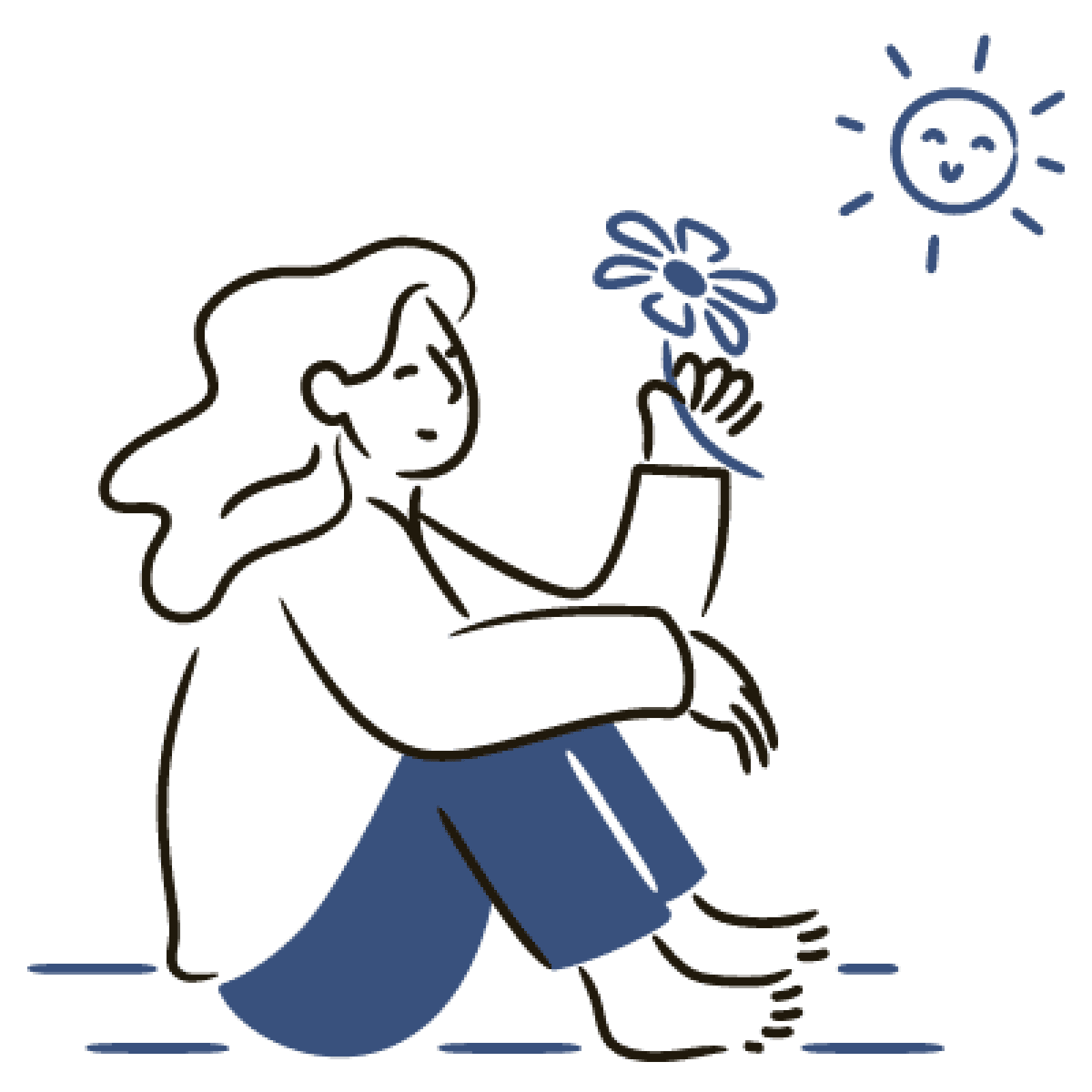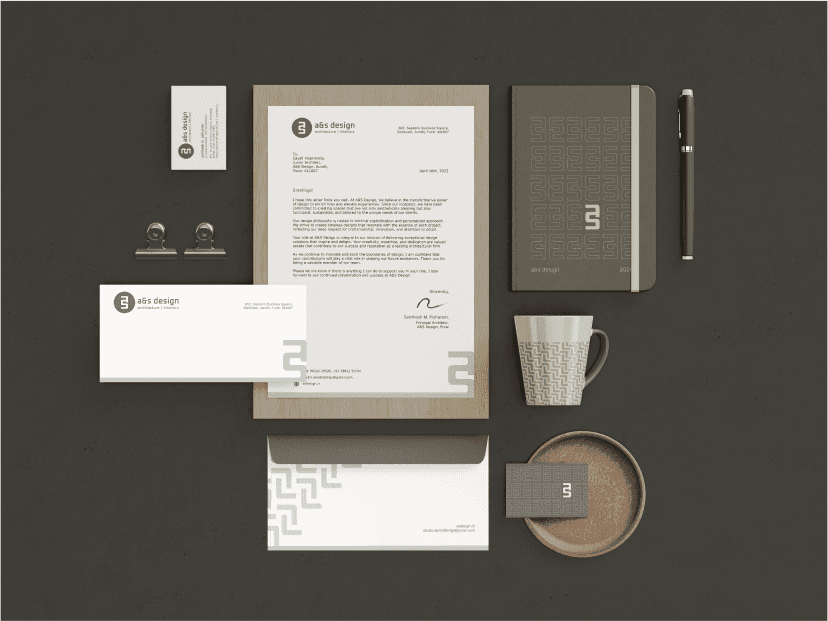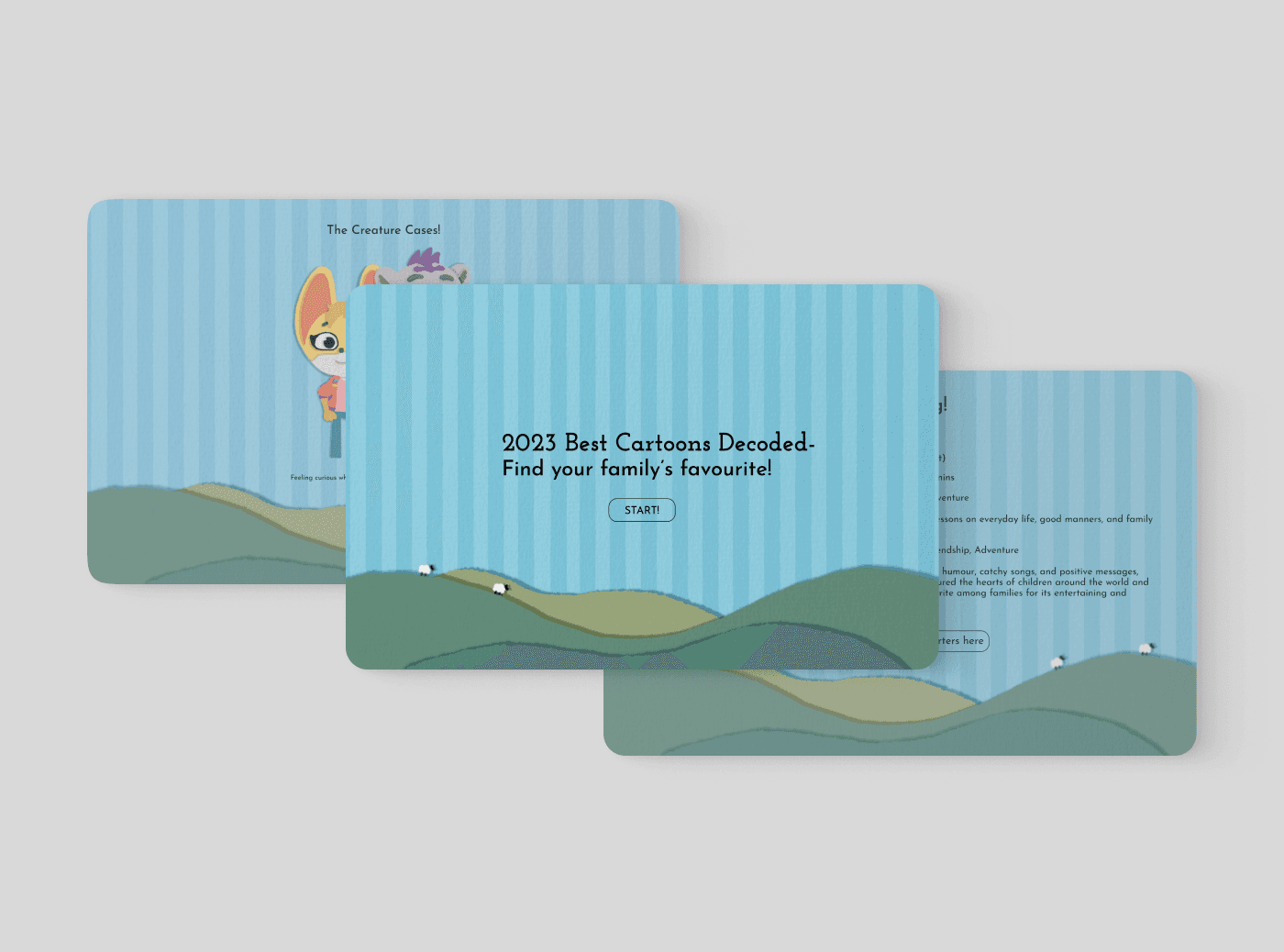What is Yana?
A mobile application to empower and connect informal Parkinson’s caregivers, offering them tools, resources and community support to make caregiving a shared journey.
70 lakh+
patients of Parkinson’s in India and growing
Highest
Number of Parkinson’s Patients in the world
1 in 3 caregivers is age
60+
40-45%
patients of Early Onset Parkinson’s
66%
of informal caregivers are the family’s women
NIH, Parkinson’s Foundation Learning Lab
Understand
Research & Interviews, Competitive Analysis
Define
User Personas, User Journey
Ideate
User flows, Wireframes
Design
Hi-Fid Design, Prototype
Goals
To relieve/ manage stress of caregivers
Strengthen knowledge on how to care reducing burnout
Connect caregivers for resources and support
Confidence, affirmations, growth.
How can we address the challenges, struggles and consequences of being an informal Parkinson’s caregiver?
Primary and Secondary Research: Insights
Caregivers of Parkinson’s patients often face emotional and physical exhaustion due to a lack of structured support, with many juggling caregiving responsibilities alongside professional work.
There is a strong need for accessible tools to monitor symptoms, access tailored resources, and foster community support for both practical and emotional challenges.
Hardest Parts of Caregiving?
“Witnessing someone you love challenge to function daily”
“Feeling enough patience everyday”
“Even after every effort, seeing Parkinson’s progress in them”
Empathy Mapping
“Parkinson’s is a difficult disease to take care of. The caregiver needs assistance and support to be able to, in turn, offer that to the patient.”
Competitor Analysis: Insights
Caregiver Gap: Existing apps focus on patients, neglecting caregiver needs, especially their emotional and logistical challenges.
Cultural Disconnect: Global apps miss India-specific caregiving dynamics, exercises & shared family roles.
Narrow Scope: Most competitors emphasize symptom tracking but lack holistic caregiver support.
Intimidating Interfaces: Dense medical interfaces make apps less approachable for caregivers.
Underused Family Networks: Apps fail to address shared caregiving responsibilities common in Indian families.
Features/ Focus
Flow Mapping
Screens
I finalized the high-fidelity screens, delving deeper into creating design systems by learning more about variants and variables in Figma. I also explored micro-interactions and overlays to make the prototypes more dynamic and intuitive.
Caregiving is not just a responsibility, but a journey of love, resilience, and shared strength.
This journey of mine in developing Yana reinforced the power of empathy in design, inspiring solutions for those who care as much as they give.
